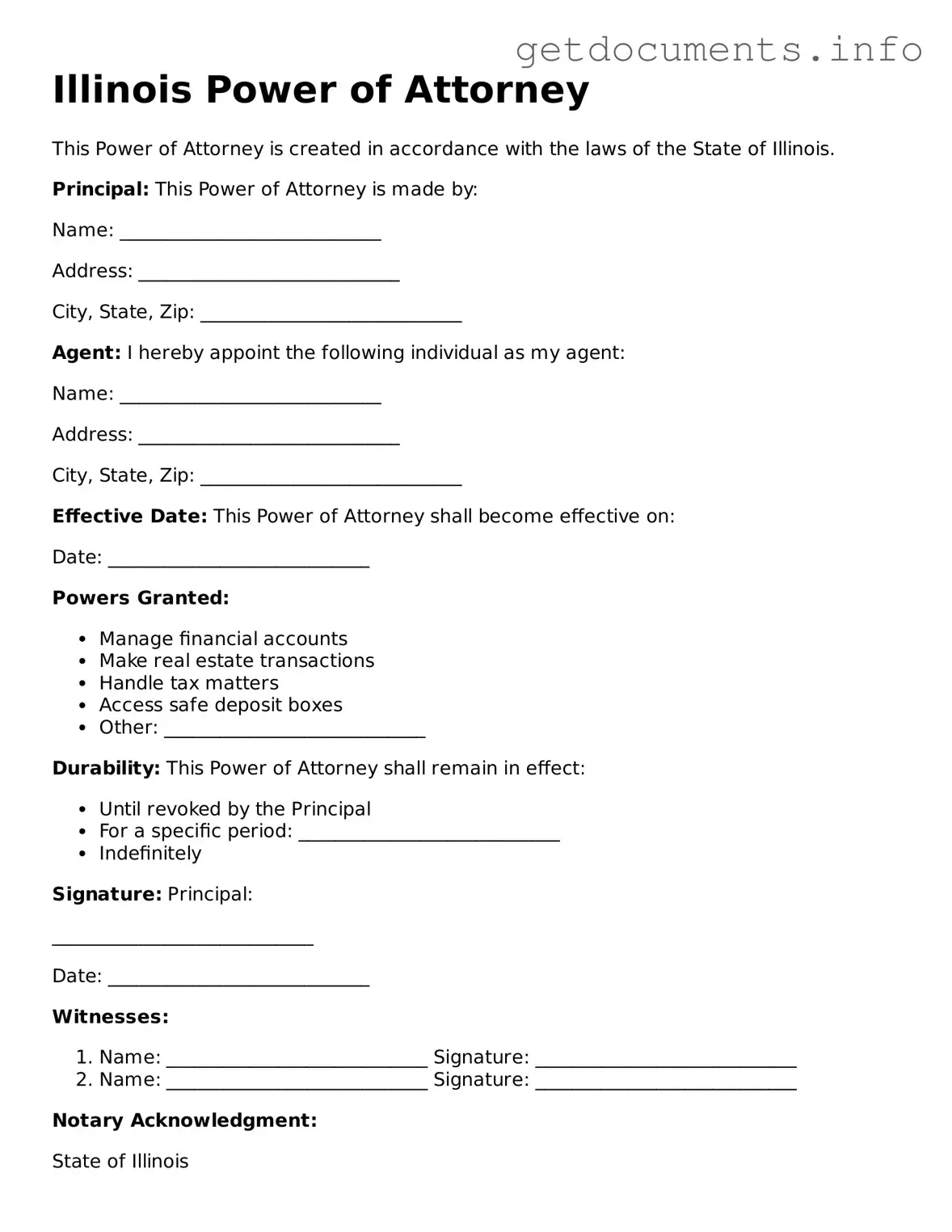Free Power of Attorney Template for Illinois
The Illinois Power of Attorney form is a legal document that allows one person to grant another individual the authority to make decisions on their behalf. This form can cover various areas, including financial and healthcare decisions, ensuring that your wishes are respected even when you are unable to express them. To get started on filling out this important document, click the button below.
Access Power of Attorney Editor

Free Power of Attorney Template for Illinois
Access Power of Attorney Editor
Got places to be? Complete the form fast
Fill out Power of Attorney online and avoid printing or scanning.
Access Power of Attorney Editor
or
⇩ PDF File
